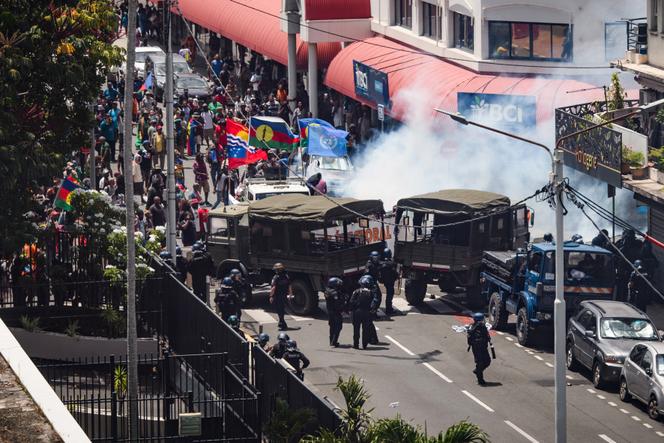


Two huge blocks of demonstrators: those who are pro-independence, and those who are against independence, will be protesting just two streets apart this Saturday, April 13. With 20,000 demonstrators expected in Nouméa, the day could well go down in history. In New Caledonia, political tensions are still running high.
The nickel crisis is worsening, with the government's "pact" blocked and Thursday's shutdown of mines in the country's northern province. The mines are caught in a tug-of-war between the shareholders of Société Le Nickel (SNL), the Eramet mining group and the province led by pro-independence Paul Néaoutyine. With provincial elections also due between now and the end of 2024, politicians have their backs to the wall. Loyalists no longer have a seat on the New Caledonian Congress, where they have suddenly declared the pro-independence majority "illegitimate." Meanwhile the Front de Libération Nationale Kanak et Socialiste (a pro-independence alliance with strong indigenous support, FLNKS), fearing that it will be outvoted at the next poll, is rejecting the constitutional bill currently before Parliament. The bill would enlarge an electoral roll frozen since 2009.
This weekend, Nouméa will have more security forces on duty than Marseille, with the interior ministry sending in two squadrons of 140 gendarmes. There's a volatile climate, mixed with impatience and fears for the future, and clashes have broken out in several places in recent days – most notably in the commune of Le Mont-Dore, near the Kanak tribe of Saint-Louis, the historic site of the anti-colonial revolt, where, according to our information, police fired 500 grenades on April 8.
On April 4, the FLNKS "field action committee" placed a tamioc (a Kanak ax) on a ballot box at a press conference, to protest against "the Macron approach" in ongoing political discussions. It's a reminder of Eloi Machoro's symbolic gesture in 1984, at the start of the "events" that ended up tearing Caledonians apart. Then, the pro-independence militant Machoro smashed a ballot box to protest against the draft autonomy regulation drawn up in Paris and to call for a boycott of territorial elections.
"We're continuing on the road to division," lamented Caledonian MP Philippe Dunoyer (Renaissance, Macron's party). A member of the moderate right-wing party Calédonie Ensemble, he criticized the hard-line stance adopted by the rest of the local right under the impetus of loyalists, including former Secretary of State Sonia Backès and the other Caledonian MP in the presidential majority, Nicolas Metzdorf. "No one is giving instructions to fight each other," he noted. "There are always doubts about the ability to control thousands of people."
You have 60.82% of this article left to read. The rest is for subscribers only.
